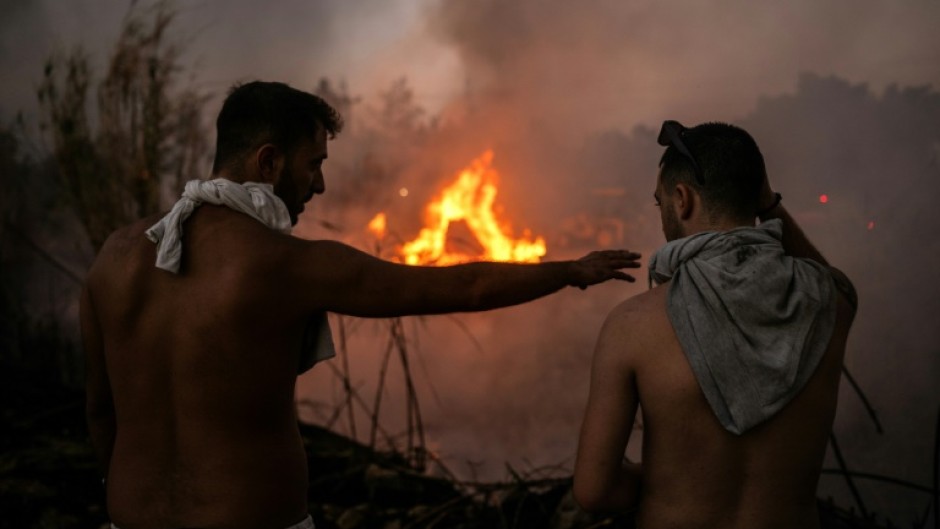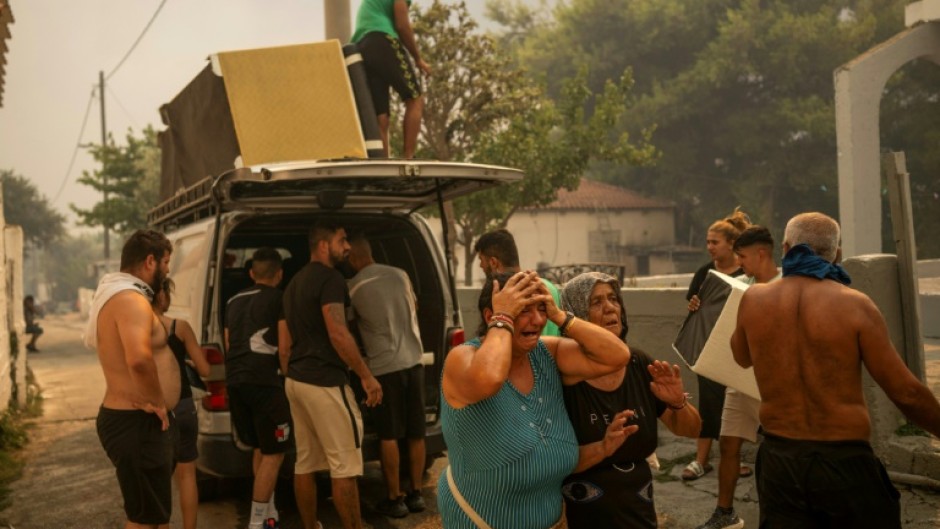Greek emergency services battled a massive wildfire threatening Athens for a third day Tuesday after finding the first victim and thousands of people were kept away from their homes by the flames.
The body of a Moldovan woman was found in a burned out factory and at least 66 people have been treated for injuries since the fire broke out Sunday, authorities said. Five firefighters have been hurt.
Fuelled by strong winds, the wildfire raced across parched landscape northeast of the capital, destroying dozens of houses, cars and businesses in the 10,000 hectares of land it has devastated.
The Greek government appealed for assistance from other European nations. France, Italy, Czech Republic, Romania, Serbia and Turkey were sending hundreds of firefighters along with helicopters, fire engines and water tankers, authorities said.
The fire has badly hit the suburbs of Nea Penteli, Palaia Penteli, Patima Halandriou and Vrilissia.
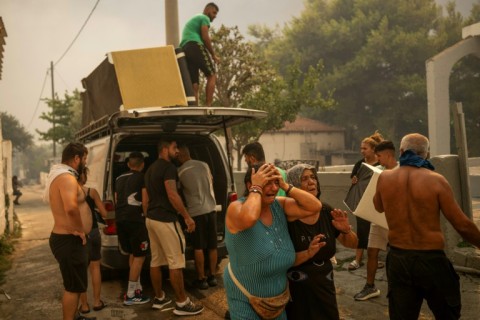
The body of a Moldovan in her 60s was found in a factory in the suburb of Halandri. A bouquet of white flowers was laid in tribute in the mess of burned out steel and burned chairs and tables.
Halandri mayor Simos Roussos told ERT state television that he had seen nearly a dozen homes destroyed by fire in his town. Numerous businesses, used car and coal yards and paint warehouses were also affected, he said.
"The fire travelled 50 kilometres and changed direction 10 times," Roussos said.
In nearby Penteli, a helicopter waterbombed huge balls of flame coming from a warehouse containing wood and what is believed to be propane tanks. Locals fled loud explosions, which sent items flying.
The labour ministry banned outdoor working in areas hit by the fires because so many burned factories contained toxic chemicals.
With much of the capital covered by acrid smoke for two straight days, scientists reported an alarming rise in hazardous airborne particles, particularly from Sunday night to Monday night.
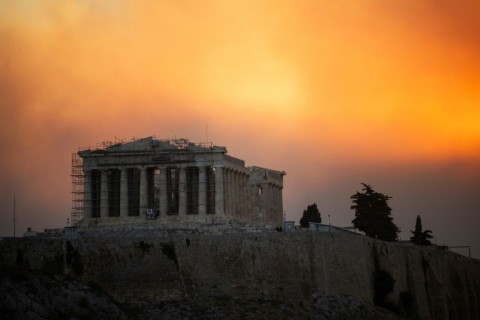
"Never in a million years did I think a fire would come here," 65-year-old Sakis Morfis told AFP outside his gutted home in Vrilissia.
"We're without clothes, money, everything was burned inside," he said.
Hundreds of firefighters, backed by around 200 fire engines and 12 water-bombing aircraft battled the blaze that started in Varnavas, some 35 kilometres from Athens.
Costas Tsigkas, head of the association of Greek firefighter officers, told ERT the army of firefighters had made progress during the night.
"We are at a better level across the front," Tsigkas said. "But conditions again will not be easy. There will be winds from midday onwards" and "every hour that passes will be more difficult".
Greece's National Observatory, itself threatened by the wildfire, said temperatures of up to 38 degrees Celsius are expected on Tuesday, with winds of up to 39 kilometres per hour.
- 'Unanswered questions' -
Greece's conservative government came under attack from the press over the fire.
"Enough is enough," thundered the front page of Greece's top-selling centrist daily Ta Nea. The liberal Kathimerini said the "out of control" inferno "had left huge destruction (and) unanswered questions".
"Evacuate Maximou," said the left-wing Efsyn daily, referring to the building housing the prime minister's office.
The blaze scaled Mount Pentelikon, also known as Mount Pentelicus, that overlooks the capital and bore down on suburbs that are home to tens of thousands of residents.
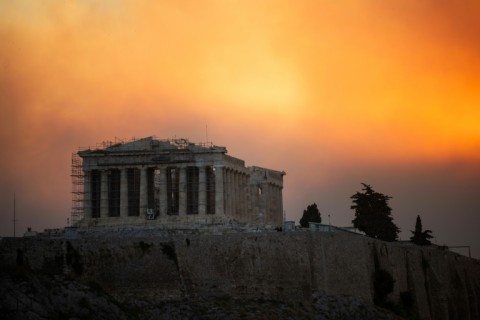
Dozens of evacuation orders were issued and many thousands fled.
Prime Minister Kyriakos Mitsotakis returned from holiday on Sunday because of the crisis. He has yet to comment on the disaster however.
The destruction revived memories of fires in Mati, a coastal area near Marathon, in July 2018 where 104 people died in a tragedy blamed on evacuation delays and errors.
The summer wildfire season in Greece this year has seen dozens of daily blazes after the Mediterranean country recorded its warmest winter and the hottest June and July since reliable data collection began in 1960.
Scientists say that human-induced fossil fuel emissions are worsening the length, frequency and intensity of heatwaves across the world.
By Anna Maria Jakubek And John Hadoulis

